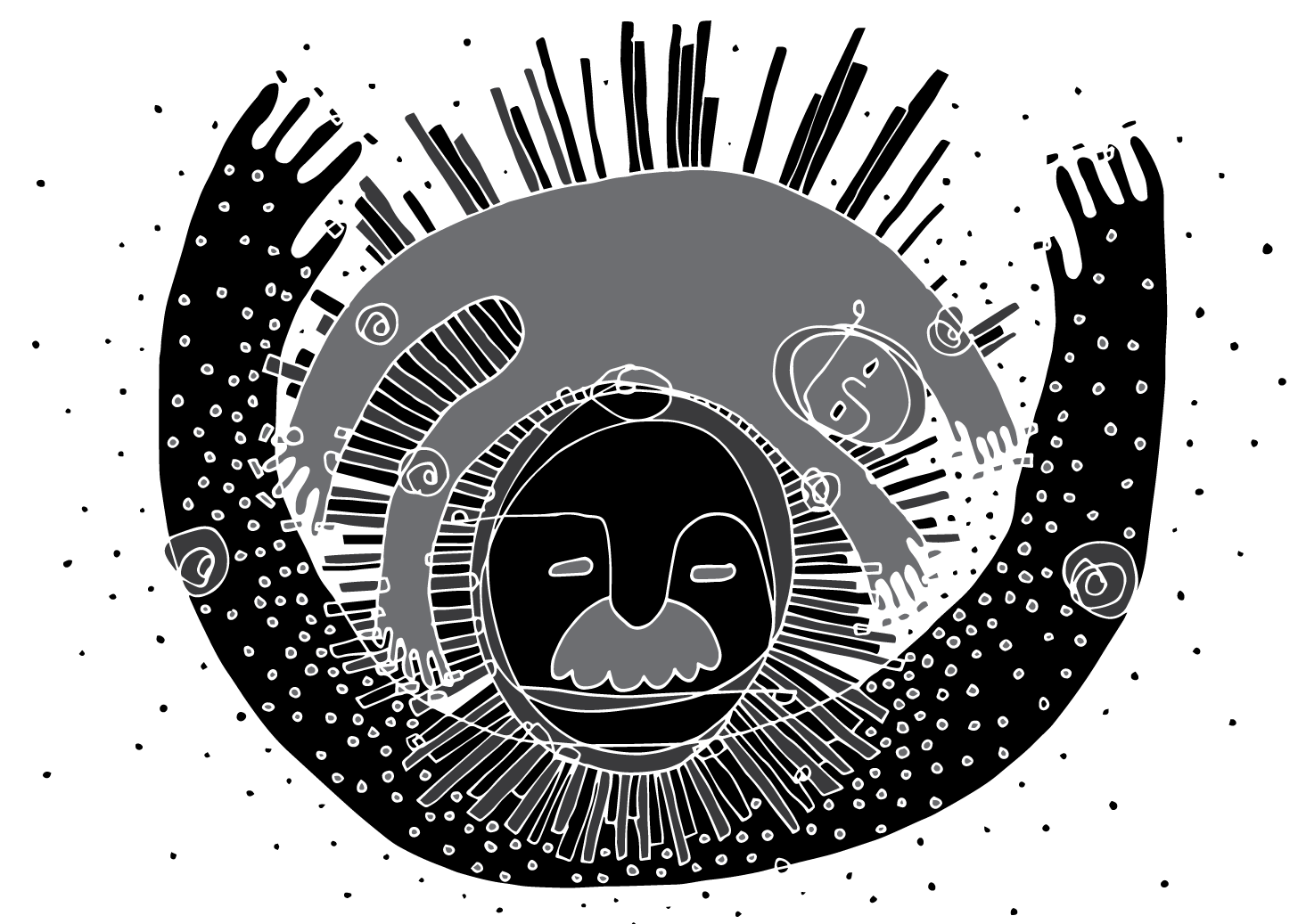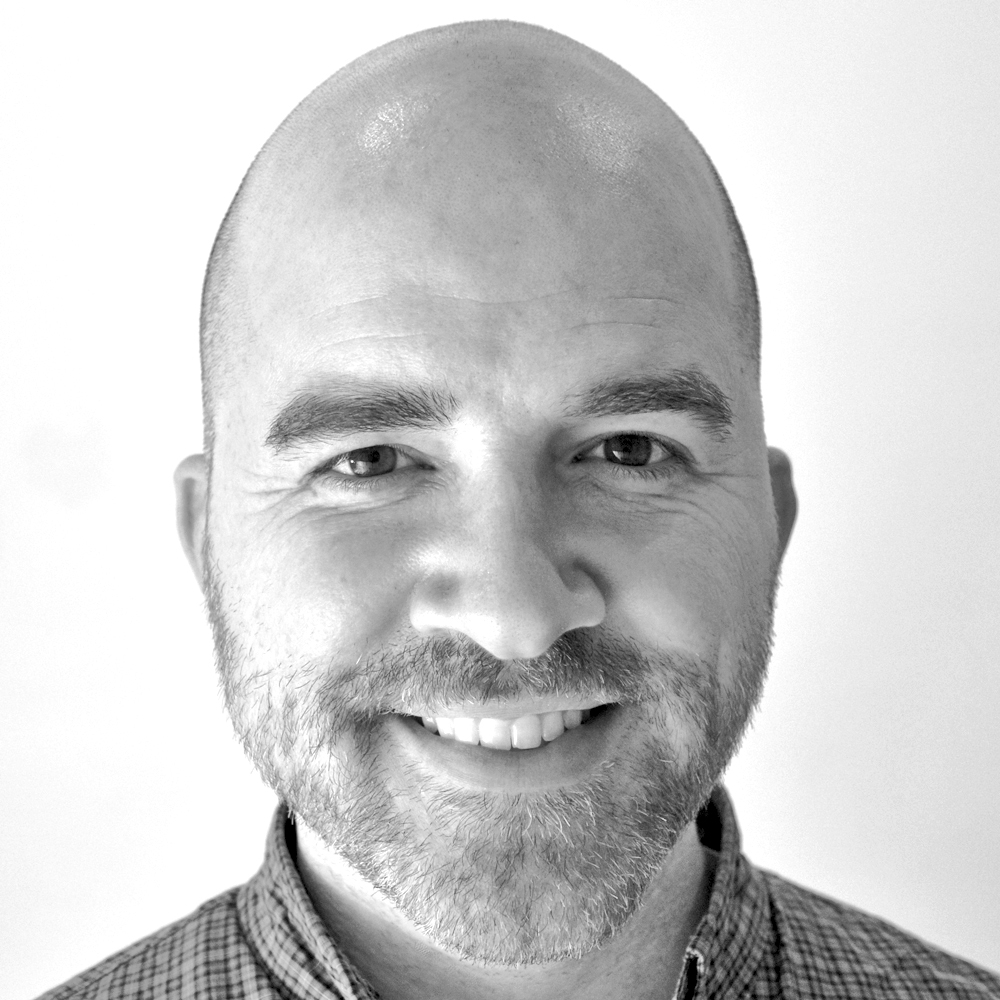
In memory of Russ D’Anna, who passed away on January 17, 2018.
Russ D’Anna sent emails in 36pt type. Not because he was angry—because he charged to meet the world. He was literally a fighter. In his youth he was a member of an army Special Forces unit. There was a sepia photo of him leaning against a stucco wall with a clever look on his face and a mean-looking rifle on his shoulder. He came at everything that way—publishing, people, design—like he was storming a beach. Every time I saw him, he was battering the keyboard and barking about someone somewhere who was doing it all wrong. “What do you even do here? Anything? Anything worthwhile at all?” He asked me this when I was a junior designer, too green to know what weight needed pulling, back when he genuinely didn’t know the answer. He continued to ask this question after I became a design director, pulling more weight than was I asked to, after he new well what I did for the company—and for him. He didn’t believe in laurels, or resting, or giving an inch. He pushed me, he pushed everyone, he didn’t just push us forward, he pushed us up—we stood on his shoulders.
Shortly before I came to Scholastic, Russ founded the Scholastic Design Forum, a group of art directors that organizes events to educate and inspire Scholastic’s sizable community of designers—at least that was the baseline objective. His vision was to go well beyond camaraderie. He aimed to advocate for and elevate the role of design. Following one Design Forum gathering, after the room had cleared, I approached Russ, introduced myself, and offered to help—suggesting that I could take out the trash after events. He smiled and instead invited me to join the steering committee on the spot. That was his gift. He’d spot someone’s enthusiasm, or passion, or talent, or something he couldn’t name and would open the door for them. He did it for me. He did it for design legends like Carol Devine Carson and Marijka Kostiw. He did it for countless others, as a design director at Scholastic, and as a teacher at SVA. It came naturally to him.
Thanks to Russ, I was suddenly the only designer at a table of design directors. Eager to earn my seat, I began organizing speakers, starting with my former professor Ellen Lupton. Shortly after that, Milton Glaser graciously agreed to speak. Russ was thrilled. I can still see him posing for a photo with Milton, beaming with pride. He had two design idols, Paul Rand and Milton Glaser. (Russ used Milton’s signature brown ink on all his correspondence up until the very end.) After Milton spoke the floodgates opened. I hosted a slew of storied designers, including Michael Bierut, Debbie Millman, and Gail Anderson to name a few. I pulled together each event with Russ’s support and guidance. We would sit in the empty auditorium in the hour before each event, and I’d run down the list of things I’d done to promote and prepare, often being happy to report that we had enough RSVPs to fill the room. Each and every time he’d scoff, “Nowhere near enough! You’ve made too many assumptions! Nobody will show.” He held the bar high and it never budged.
Before the advent of writing, everything was taught through mentorship. How to chip a stone into an axe. How to build a shelter. How to love. How to lead. Mentorship is hardwired into our DNA. It’s particularly important in graphic design, a young field that has been wrought with disruption from the start. Most of the young designers that I meet express the desire to find a mentor. This is doubly the case in book design where the particularities of book production and manufacturing are not taught in school. Most junior designers join publishing houses ready to do little more than continue learning. The family tree of mentorship in publishing design has deep roots and wide branches. The tools that Russ used when he first started at Scholastic in the mid ‘60s were radically different than the tools I used to perform the same job when I started 40 years later. I couldn’t relate to the technical details of many of his stories, but I could relate to the higher level concerns. The perpetual earthquake of technological advancement hoists generational common ground into the air. Issues of management, theory, culture, metaphor, and messaging span the decades and bind us with a common thread.
It was a privilege to be bound to Russ. I will spend the rest of my career working to honor what he taught me. But mentorship is about more than learning, it’s also about friendship—it’s about love. He imparted more advice than I could every write down. We also laughed together more times than I could ever remember. His voice echoes in my work as a designer, but his laughter reverberates through my life well beyond my chosen profession. Earlier I wrote that “we stood on his shoulders” but the use of past tense isn’t accurate. Russ is indeed gone, he passed away yesterday, but I’m still standing on his shoulders, and I always will be.

